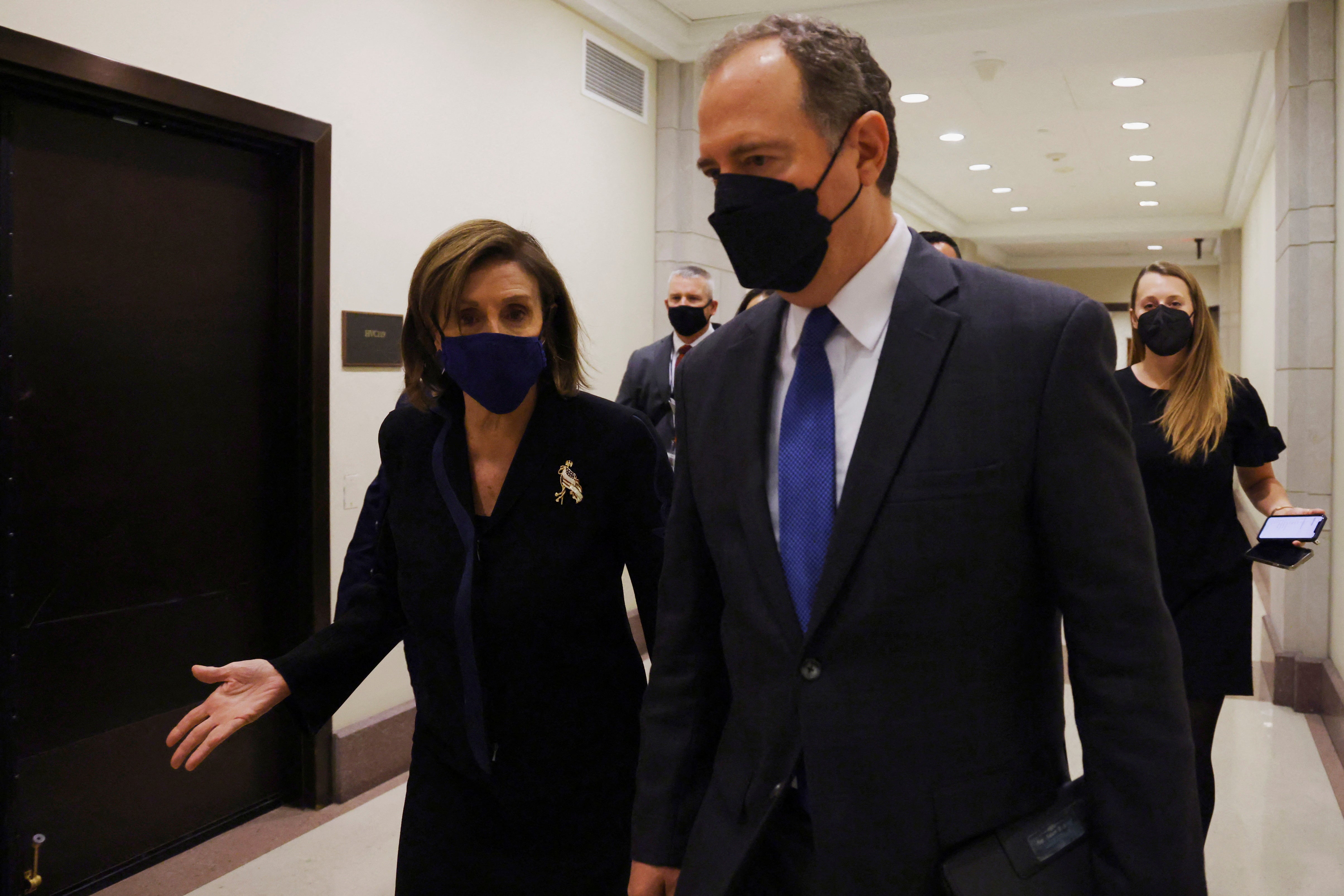Democrats’ bill to protect democracy passes the House but has little chance in the Senate
The legislation has gained new salience as investigations into the Capitol riot has been stonewalled

Your support helps us to tell the story
From reproductive rights to climate change to Big Tech, The Independent is on the ground when the story is developing. Whether it's investigating the financials of Elon Musk's pro-Trump PAC or producing our latest documentary, 'The A Word', which shines a light on the American women fighting for reproductive rights, we know how important it is to parse out the facts from the messaging.
At such a critical moment in US history, we need reporters on the ground. Your donation allows us to keep sending journalists to speak to both sides of the story.
The Independent is trusted by Americans across the entire political spectrum. And unlike many other quality news outlets, we choose not to lock Americans out of our reporting and analysis with paywalls. We believe quality journalism should be available to everyone, paid for by those who can afford it.
Your support makes all the difference.House Democrats passed a series of reforms aimed at giving Congress better power to rein in the executive branch. But prospects that the bill will pass in the Senate are slim, despite former Trump administration officials stonewalling the investigation into the 6 January Capitol riot.
Democrats’ Protecting Our Democracy Act includes a series of proposals such as prohibiting self-pardons by a president, requiring the Department of Justice and the White House to submit to Congress’ requests relating to pardons, suspending the statute of limitations on any federal offence committed by a sitting president or vice president, and requiring federal reporting of foreign campaign contacts. It also includes penalties for political appointees engaging in prohibited political activities.
The bill also includes protections for whistleblowers, requiring the Justice Department to maintain a log of communications between it and the White House for certain investigations and a cause for removal for inspectors general.
Rep Adam Schiff, who is chairman of the House Intelligence Committee, announced that it was important to set up these measures after the Trump administration ran roughshod over congressional oversight, exposing the weaknesses of the curbs on executive power put in place after Richard Nixon’s presidency.
“During the last administration, so many of the Nixon-era norms were broken down, exposing new vulnerabilities to our democracy,” Mr Schiff said. Mr Schiff sits on the House’s select committee investigating the 6 January riot and said that the former president and his allies are showing how difficult it was to hold the executive branch accountable and pointed to the legislation’s expediting of congressional subpoenas
“The necessity of which is being demonstrated in real-time, as top officials in the former administration once again seek to stonewall subpoenas and prevent the public from learning in their role in the January 6 insurrection,” he said at a press conference on Thursday.
Mr Schiff’s remarks come after the House voted to hold former Trump administration adviser Steve Bannon in contempt of Congress. Similarly, former White House chief of staff Mark Meadows sued the select committee in an attempt to block enforcing subpoenas against him. Mr Meadows himself is facing a contempt of Congress vote next week.
On Thursday, shortly around the time the House passed the legislation, a federal appeals court ruled against Mr Trump’s request for an injunction against the committee as he seeks to block it from obtaining communications made with his inner circle in the days and hours leading up to the riot.
Rep Jerrold Nadler, chairman of the Judiciary Committee, and other Democrats were quick to acknowledge that the legislation was not meant to seek revenge on Mr Trump but to prevent other presidents from doing so in the future.
“Although many of the provisions of this legislation draw directly on our experience with the prior administration, they are pointedly not anti-Trump measures,” he said. “Rather they are forward-looking and they protect against future abuses by any president of any party.”
The legislation passed with all 220 Democrats present voting in the affirmative but only one Republican, Rep Adam Kinzinger of Illinois, a member of the committee who is retiring, voted for it. Rep Liz Cheney, the committee’s vice chairwoman, voted against the legislation.
Similarly, the legislation has little prospect of passing the Senate, given that it would require breaking the 60-vote threshold to end a filibuster. Conservative Democratic Sens Joe Manchin of West Virginia and Kyrsten Sinema of Arizona oppose removing the filibuster.
“I firmly believe that at a minimum, there should be a carve-out to the filibuster for reforms that are vital to our democracy,” Mr Schiff said. He also stressed the need for a carve-out for voting rights legislation like the John Lewis Voting Rights Act.
Join our commenting forum
Join thought-provoking conversations, follow other Independent readers and see their replies
Comments